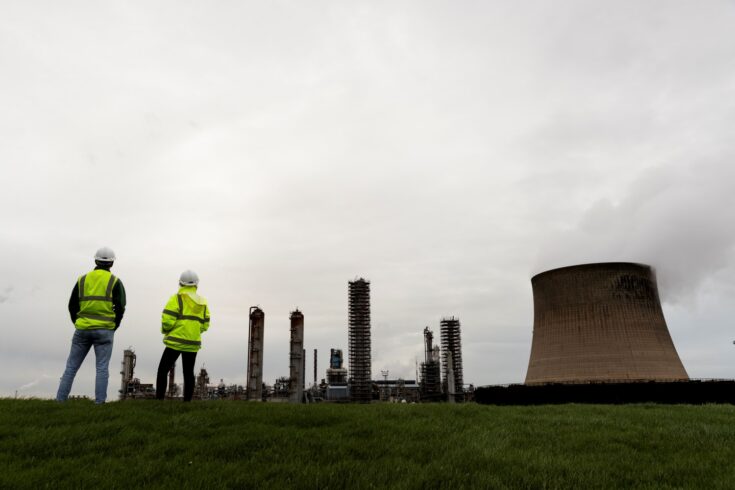The two projects are Net Zero Teesside (NZT) Power and the Northern Endurance Partnership (NEP).
The funding was delivered through the industrial decarbonisation challenge (IDC), with £28 million awarded to NZT Power and £24 million awarded to NEP with match-funding being provided by project partner organisations.
UK industrial decarbonisation
The north-east has long epitomised the entrepreneurial and innovative spirit that has defined the UK following the industrial revolution.
Industries in Teesside have a long history of supporting the UK economy.
A successful transition to net zero could translate to £34 billion in cumulative additional gross value added (GVA) by 2040 and 30,000 new jobs.
The delivery of NZT Power and NEP are key to realising these benefits.
Contributing to the UK’s clean growth
The IDC is a £210 million fund supporting development of low-carbon technologies and infrastructure, increasing industry competitiveness and contributing to the UK’s clean growth.
The challenge has aimed to stimulate collaboration and engagement across multiple stakeholders in the industrial clusters in recognition of the fact that no one single sector or actor can achieve net zero by themselves.
The realisation of the IDC’s important enabling work in the future will contribute to a stronger economy, greater energy security, innovation and prosperous communities.
NEP
NEP was created to provide the common infrastructure needed to transport carbon dioxide (CO2) from emitters in the Humber and Teesside to the endurance carbon storage site in the North Sea. Endurance is the name of a geological feature, a saline aquifer, which has the capacity to safely store around 450 million tonnes of CO2.
NEP received £24 million in Industrial Strategy Challenge Fund (ISCF) funding and has been able to deliver front end engineering design for:
- onshore gathering network
- high-pressure compression station
- offshore pipeline and injection system
The funding has also enabled:
- survey and geotechnical works to be completed on the offshore and onshore scopes
- seismic data acquisition for the store
- completion of an offshore geotechnical borehole
NZT Power
£28 million of the ISCF funding was used for the design and development of NZT Power. It is the world’s first commercial-scale gas-fired power station with carbon capture and onshore pipeline infrastructure.
It is part of a decarbonised group of industries on Teesside that will share the CO2 transportation and storage infrastructure being developed by NEP.
It is expected that NZT Power will capture two million tonnes of CO2 annually and generate 750 megawatts of flexible power, contributing to the UK’s energy security. Whereas, NEP will transport and permanently store carbon from a range of emitters across Teesside and the Humber under the North Sea.
Future funding
The funding from UKRI’s IDC has been fundamental in enabling the two projects to progress to an advanced stage of development.
NZT Power and NEP have recently entered negotiations with the Department for Energy Security and Net Zero for business model support with final investment decisions expected in 2023.
The aim is that commercial operations will begin in 2027.
The successful conclusion of this project phase for NZT Power and NEP marks a significant milestone in the UK’s journey to delivering a low carbon cluster by 2030 and the world’s first net zero cluster by 2040.
Paving the way for net zero
Over the last two years, cross-sector collaboration between industry, academia and government has set firm foundations for UK industrial decarbonisation.
Decarbonisation projects like NZT Power and NEP will continue this momentum and contribute to wide scale deployment of carbon capture, usage and storage.
The IDC would like to take this opportunity to congratulate the NZT Power and NEP project teams on the successful delivery of these complex, innovative projects. Achieving this has required significant contribution and collaboration across both industry and academia and paves the way for the UK’s transition to net zero.

